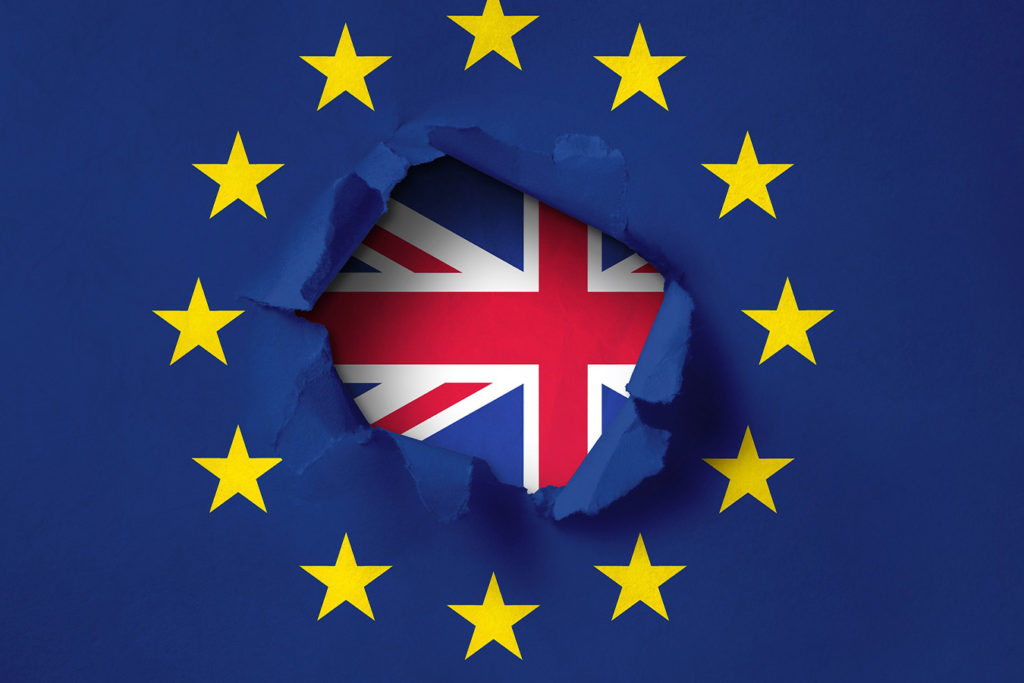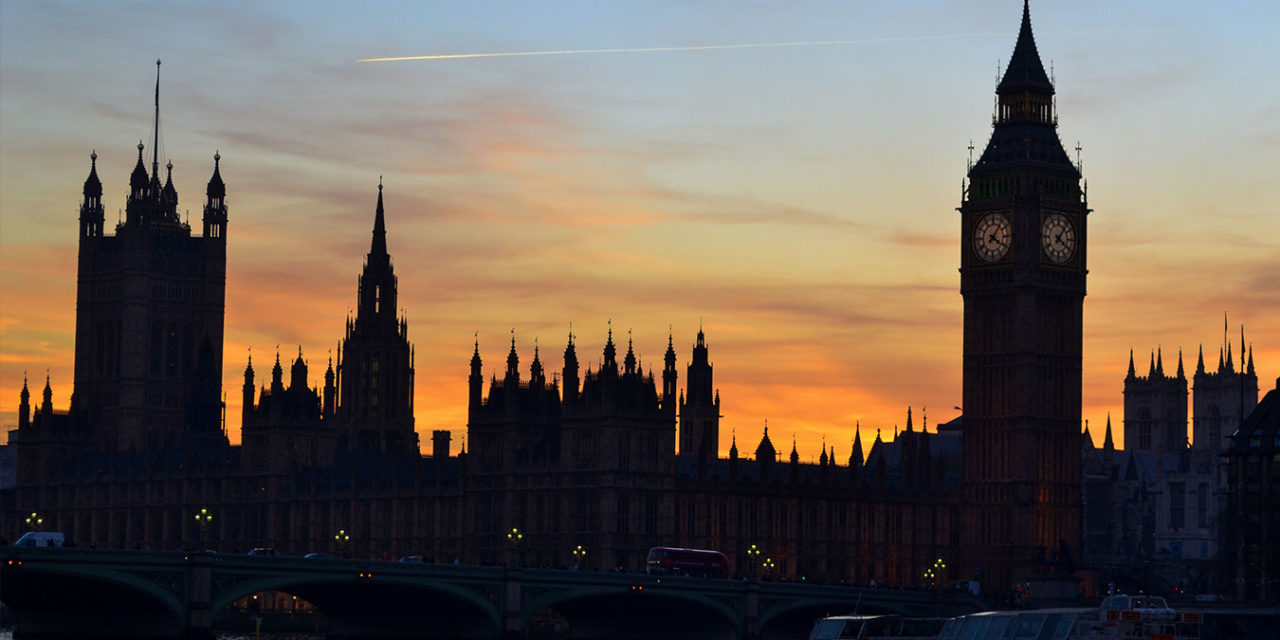As the EU has granted a 3-month flextension, or flexible extension, to Brexit until the 31st of January, the Brexit saga has helped cement a far greater blow to Britain than a sluggish economy and low business confidence – the breakup of the United Kingdom.
The hard-line English Tories who are hell-bent on delivering a hard Brexit, where the UK diverges from EU tariffs, laws, environmental protection and workers’ rights have signalled their willingness in several polls that Scottish independence would be worth it if it meant securing Brexit.
Loutish, Arrogant and Childish
Since Boris Johnson came into power, there has been loutish, arrogant and childish behaviour from some English Tories in the House of Commons towards Ian Blackford the Westminster leader of the SNP.
Some of them have been leaving the chamber when Ian Blackford starts to speak, at other times they speak loudly over him, while at others they shout insults.
In 2018, Blackford, himself an outspoken MP, was addressing Westminster about a possible post-Brexit power grab where London will take control over issues currently devolved to Holyrood in Edinburgh. When he asked, “what options are available to us in this house?” the Tory MP Ian Liddell-Grainger can be heard shouting “suicide”.
The disrespect of some Conservative MPs of their SNP colleagues is reflective of a broader indifference towards the voice and wishes of Scotland, Wales and Northern Ireland among the Conservative Party.
One Scottish MP said to Kevin McKenna, a columnist for the Observer, “some of it has been truly embarrassing. And you can see it in the eyes of some of the older and more experienced Tories, like Kenneth Clark, who seem aghast at this.”
Johnson himself has said that he does not want to give the Scottish parliament in Holyrood in Edinburgh any role in approving the withdrawal agreement when we finally leave the EU. Yet the withdrawal agreement will affect 17 areas of legislation that are currently devolved areas that are dealt with by Holyrood. His intention runs contrary to the Sewel convention whereby Westminster does not concern itself with areas normally dealt with by the devolved UK parliaments.
While in public Johnson and other Tories in his cabinet have brushed off talk of a second independence referendum, many Conservatives believe in reality he’d find it impossible to refuse, especially if, as planned, the SNP fights the next election on a pro-independence campaign and wins virtually every seat in Scotland.
Now that Ruth Davidson has resigned as Scottish leader of the Conservatives, the Tories are a spent force north of the border and Labour and the Liberal Democrats are also polling badly in Scotland.
Even Cameron would be horrified as the Tory Prime Minister who lost Scotland, but Johnson and his hard Brexit government will not shed too many tears, as long as they can get the Brexit they want.
But losing the 35 SNPs who sit in Westminster would be a bad blow for non-Conservative politicians and voters in England. It would mean that the Labour Party would find it very difficult to get enough of a majority to enter power and in England politics will continue to be dominated by a Conservative agenda.
Brexit Makes Existing Divisions Worse
Although Brexit has made division worse in England and the UK, many of these mainly negative feelings were in place, sometimes hidden, barely concealed behind a thin veneer of delusion or PR, before the referendum.
In England in particular, in the poorer areas of the north and midlands that voted heavily for Brexit, there has long been a sense of powerlessness and resentment of the elites and London. More so than Scotland and arguably Wales and Northern Ireland, England is country still divided by class, location and where power and privilege remain in the hands of a few and where private school and Oxbridge still give an unbalanced amount of access to the top jobs across most areas of the economy.
Some Foreigners Feel More Unwelcome Now
As Britain, but particularly England, continues to argue with itself over what Brexit means while failing at the same time to get it done, then foreigners living in the UK have begun to see a subtle change in the attitude of local English people towards them.
As well as the well-reported violence against some East Europeans in the immediate days after Brexit, which was short-lived and restricted to a few people on the far right of English nationalism, Europeans and foreigners from non-EU countries living in England have reported a new nastiness and coldness towards them from their English neighbours.
This has not been the case in Scotland. Researchers from the University of Birmingham interviewed people from 13 EU states living in Scotland and found that they still felt welcome after the referendum. This was because the electorate voted overwhelmingly for Remain and that immediately after the referendum the Scottish First Minister, Nicola Sturgeon, wrote a letter addressed personally to EU nationals to reassure them that Scotland was their home.
Better in EU Than a British Backwater
It’s not just Boris Johnson and the Conservative Party that shows indifference to Scotland. People I have spoken to, mainly Remainers, when I asked them about the how they felt about Scotland leaving the UK, gave answers ranging from, “no-body would really notice” to “it seems a pity, but it’s their right,” to even a bitter “if they do vote for independence we should drive them a really hard bargain.”

The notion that England subsidises Scotland is no longer entirely true. London, it is true, subsidises many regions in the UK, including many poor ones in England such as Cornwall. But the Scottish economy is now diversified enough to manage without London’s subsidies, and in any case, would be welcomed into the EU fairly quickly after leaving the UK.
Another problem is that of the four nations in the United Kingdom, England has 85% of the population and once the bigger partner doesn’t bother to listen much to the interests of its smaller contingents, then staying part of the UK only makes sense for Wales, Scotland and Northern Ireland if all four nations are in the EU.
The leader of the Plaid Cymru, which campaigns for Welsh independence, recently said that Wales would better off as an independent country in the EU than a British backwater and predicted that there will be a referendum on Welsh independence by 2030.
The situation in Northern Ireland is more volatile. Theresa May’s deal was rejected because a large minority of Conservative MPs and Unionists in Northern Ireland felt that the Backstop gave too much power to Dublin and the EU.
The current deal that Boris Johnson has negotiated replaces the backstop with what is effectively a border down the Irish Sea, and which will keep Northern Ireland in the Customs Union when the rest of the UK leaves it. This proved too much to stomach for the Democratic Unionist Party who as well as refusing to vote for it, has warned of renewed trouble from loyalist paramilitaries.
Brexit is starting to unravel the Good Friday agreement and it is now clear that the EU, an open border and frictionless trade on the Ireland of Ireland played a key part in keeping both republicans and loyalists happy.
Take this away or jeopardise this and a ‘border poll’ or a referendum on the reunification of Ireland becomes more likely, and even with protestants still making up the majority of the population, there can be no guarantee of the outcome.
And finally, there is a lack of an idea of what English nationalism is all about. Whereas the national flags of Scotland and Wales are either neutral or positive symbols, the Saint George Cross of England has largely negative connotations. It is still often associated with right-wing English nationalism, racism, or England’s disappointment as a national football team. When patriotism is discussed in the right-wing British media, it is largely English patriotism that writers are referring to.
But it is not too late to save the union. Even in Scotland support for independence is at 50/50. Many Scots, even those that may choose independence because they think it will mean better governance, feel a fondness for Britain, it’s history and achievements, regardless of the actions of the blind and tone-deaf government that is in charge in Westminster. The same, for now, is true in Wales and amongst the non-republican community in Northern Ireland.
- Why is California So at Risk from Wildfires? - 13th November 2019
- Carbon Offsetting is Growing but Does it Make a Difference? - 11th November 2019
- Three Confirmed Dead as Australia Prepares for “Catastrophic” Bushfires - 11th November 2019






